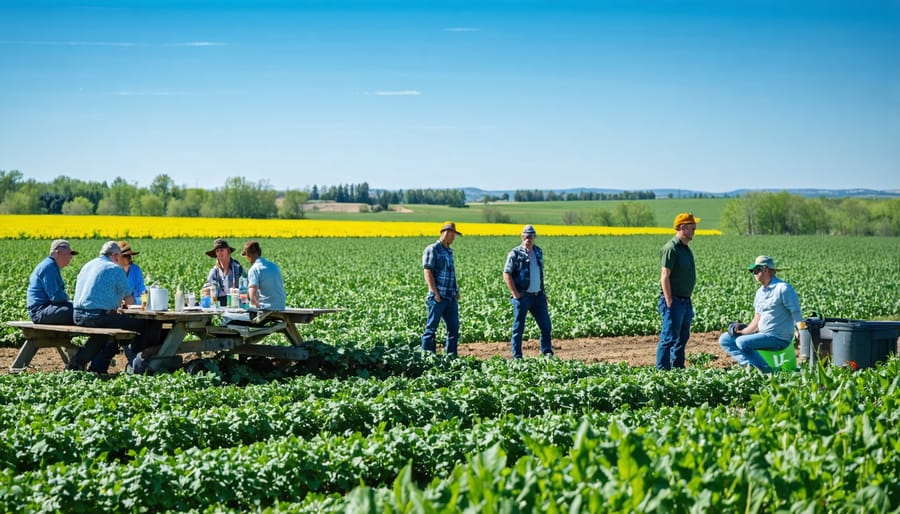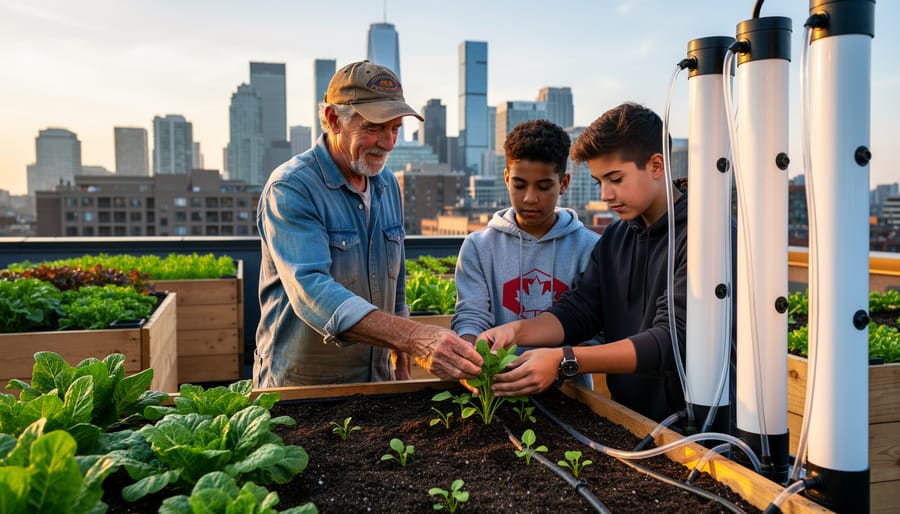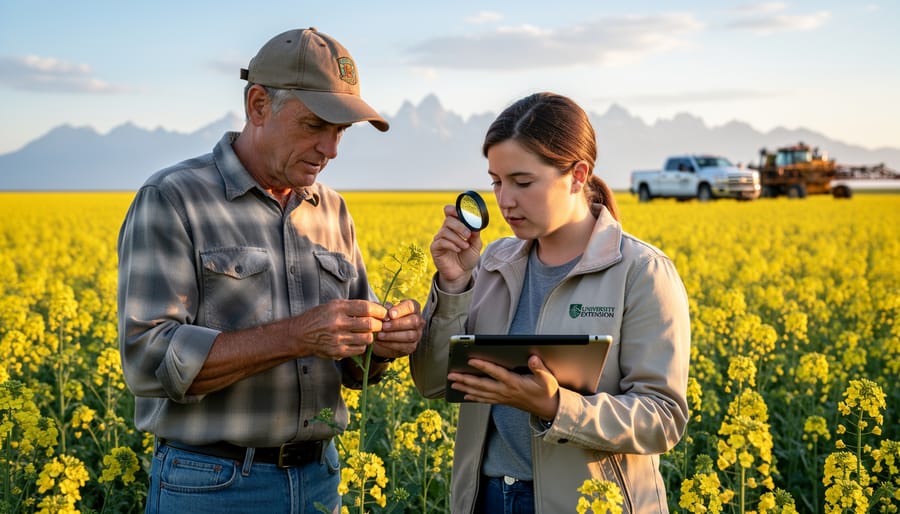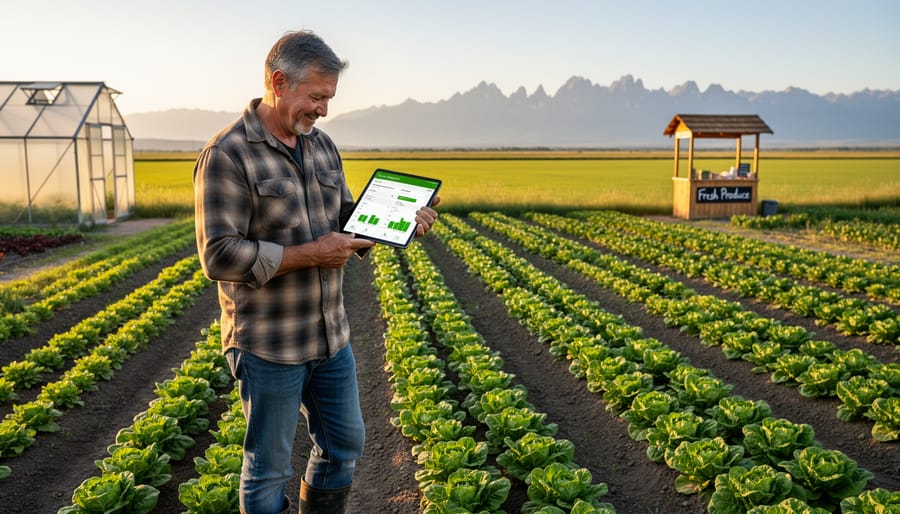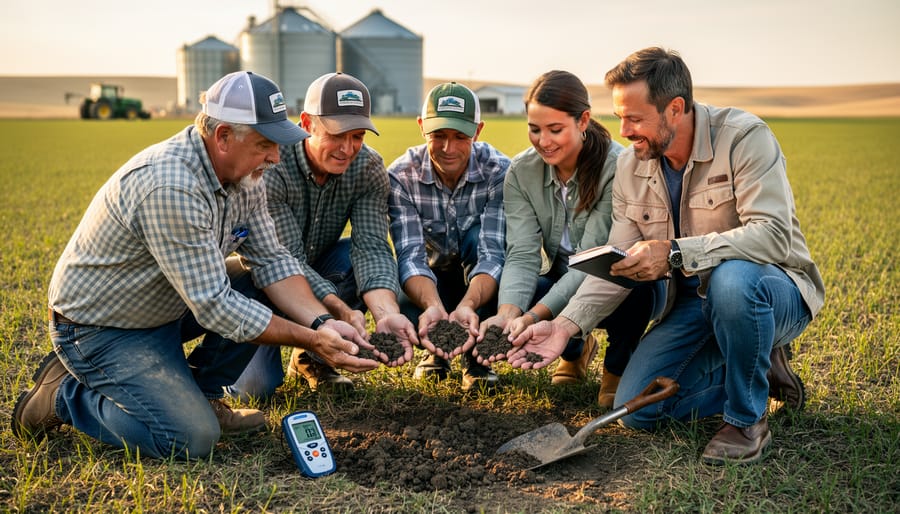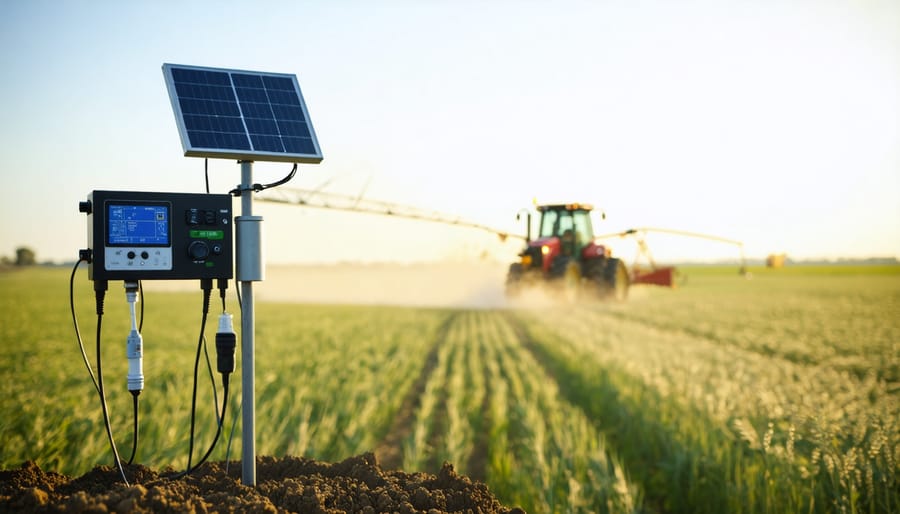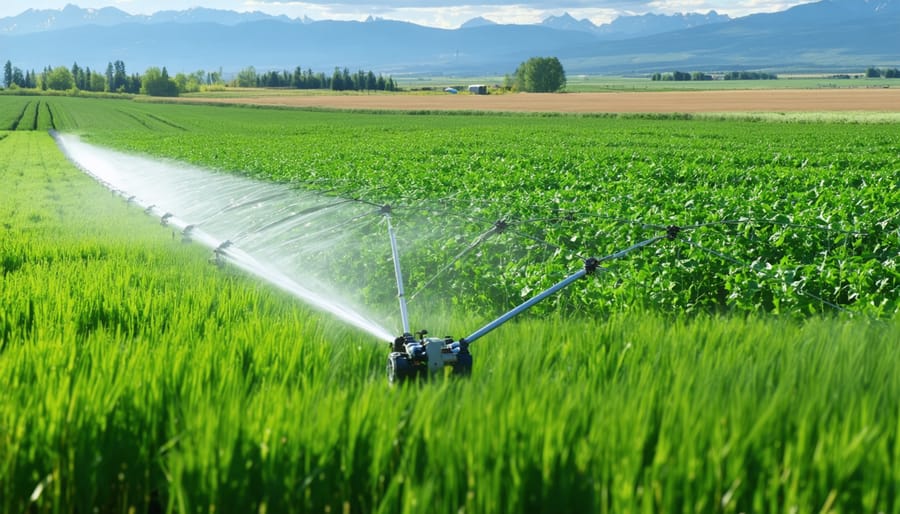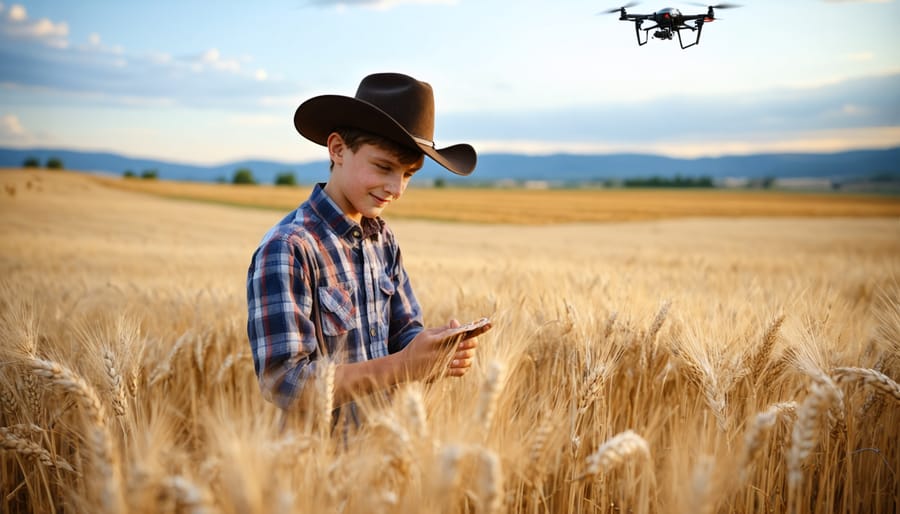The Journal of Agricultural Education and Extension stands as a pivotal platform bridging research and practice in modern farming education. Since its inception in 1994, this peer-reviewed publication has transformed how agricultural knowledge flows between researchers, educators, and farming communities across the globe. Through rigorous academic discourse and practical case studies, the journal addresses critical challenges in agricultural education, from implementing sustainable farming practices to integrating digital technologies in rural learning environments.
What sets this publication apart is its dual focus on both theoretical frameworks and real-world applications, particularly relevant for Canadian agricultural communities. Each issue combines cutting-edge research with practical insights, enabling agricultural educators and extension workers to develop more effective teaching methodologies and outreach programs. The journal’s emphasis on evidence-based approaches has proven instrumental in advancing sustainable farming practices while supporting the professional development of agricultural educators.
For practitioners in Alberta and beyond, this resource provides essential tools for understanding how agricultural knowledge is best transmitted and adopted across diverse farming communities. Its impact extends beyond traditional academic boundaries, influencing policy development, curriculum design, and the implementation of innovative extension services that respond to evolving agricultural challenges.
The Growing Link Between Agriculture and Mental Wellness
Research Findings from Alberta’s Farm Communities
Recent studies conducted across Alberta’s farming communities have revealed promising connections between agricultural education initiatives and improved mental wellbeing. A 2022 survey of 500 farmers in central Alberta showed that participants who engaged in agricultural education programs reported a 35% reduction in stress levels and a 40% increase in overall job satisfaction.
The University of Alberta’s Agricultural Sciences Department found that farmers who participated in regular learning sessions were more likely to implement sustainable practices and experience better work-life balance. Particularly noteworthy was the impact on young farmers aged 25-40, who reported feeling more confident and resilient after completing educational programs focused on modern farming techniques and business management.
Community-based learning initiatives in regions like Red Deer and Grande Prairie demonstrated that group educational settings created valuable support networks. These programs not only improved agricultural knowledge but also fostered meaningful connections among participants, with 78% reporting increased feelings of community support and reduced isolation.
The findings highlight the dual benefit of agricultural education: enhancing farming expertise while supporting mental health through community engagement and skill development.
Educational Programs That Make a Difference
Alberta’s agricultural education landscape has transformed significantly through innovative programs that combine traditional farming knowledge with modern sustainable practices. The Green Acres Initiative, launched in 2021, has successfully connected over 200 young farmers with experienced mentors, passing down agricultural wisdom while incorporating new technological solutions.
The Southern Alberta Institute of Technology’s Agricultural Management program stands out for its hands-on approach, offering students real-world experience through partnerships with local organic farms. Their innovative “Farm-to-Future” curriculum has achieved an impressive 85% graduate employment rate within the first year.
The Olds College Smart Farm has revolutionized precision agriculture education by providing students access to 2,800 acres of connected farmland. Here, learners use cutting-edge technology while maintaining traditional sustainable farming practices. The program has trained over 500 farmers in the past two years, leading to a 40% increase in sustainable farming adoption rates across central Alberta.
These educational initiatives have created a strong foundation for the next generation of Canadian farmers, ensuring the continuation of sustainable agricultural practices while embracing innovation.
Building Resilience Through Agricultural Knowledge
Stress Management Through Sustainable Practices
Research conducted across Alberta’s farming communities has shown a direct correlation between sustainable farming education and reduced stress levels among agricultural producers. When farmers learn and implement sustainable practices, they often experience greater confidence in their operations and improved resilience to environmental challenges.
A recent study by the University of Alberta found that farmers who participated in sustainable agriculture workshops reported a 40% reduction in work-related stress after six months of implementing new practices. These educational programs focus on soil health management, water conservation, and integrated pest management techniques that not only benefit the environment but also provide farmers with more predictable and stable outcomes.
Local farmer Sarah Thompson from Red Deer County shares, “Learning about sustainable practices gave me more control over my operation. Understanding how to work with nature rather than against it has significantly reduced my anxiety about weather uncertainties and crop failures.”
The integration of traditional knowledge with modern sustainable techniques has proven particularly effective. Mentorship programs connecting experienced sustainable farmers with those transitioning to more environmentally friendly practices have created supportive networks throughout the province. These connections provide both practical guidance and emotional support, addressing two critical aspects of farmer well-being.
By focusing on long-term sustainability rather than short-term yields, farmers report feeling more secure about their farm’s future and their role in environmental stewardship. This shift in perspective, supported by ongoing education and community engagement, continues to contribute to improved mental health outcomes in agricultural communities.
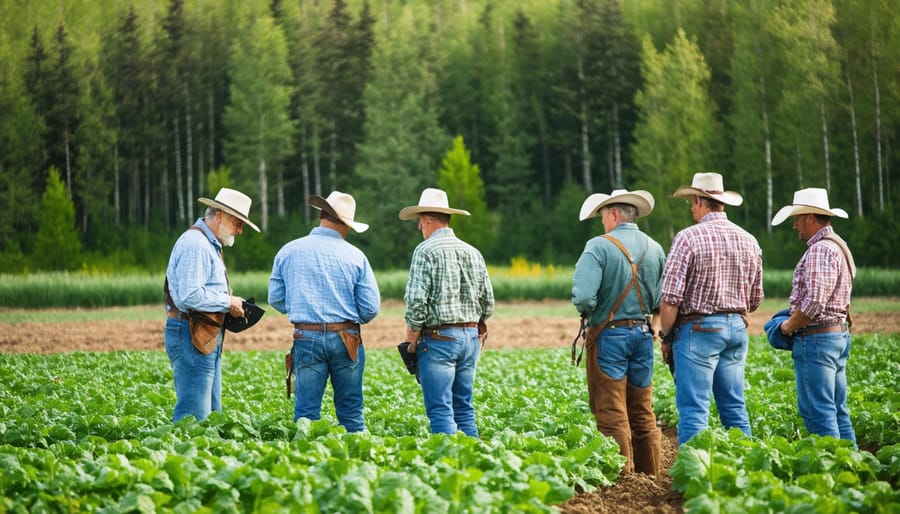
Community Learning and Social Support
Community learning and social support play vital roles in agricultural education, particularly in Alberta’s farming communities. Research shows that farmers who participate in group learning activities are more likely to adopt sustainable practices and experience improved mental well-being. Through community food systems and collaborative learning environments, farmers share knowledge, experiences, and innovative solutions to common challenges.
Local agricultural study groups and peer-to-peer mentoring programs have proven especially effective in the Prairie provinces. These initiatives create supportive networks where experienced farmers guide newcomers, while also providing spaces for discussing both technical and emotional aspects of farming life. For example, the Southern Alberta Farm Learning Network reported that 87% of participants felt more confident in their farming decisions after joining community learning groups.
Digital platforms have also transformed how farming communities connect and learn. Online forums, webinars, and social media groups complement traditional face-to-face meetings, allowing farmers to stay connected despite geographical distances. This hybrid approach has been particularly valuable during challenging seasons when in-person gatherings are limited.
The social support aspect extends beyond just learning; it creates resilient communities that can better weather agricultural challenges together. Whether sharing equipment, labour during harvest, or emotional support during difficult times, these networks strengthen the fabric of rural communities while advancing agricultural knowledge and practices.
Practical Implementation in Alberta
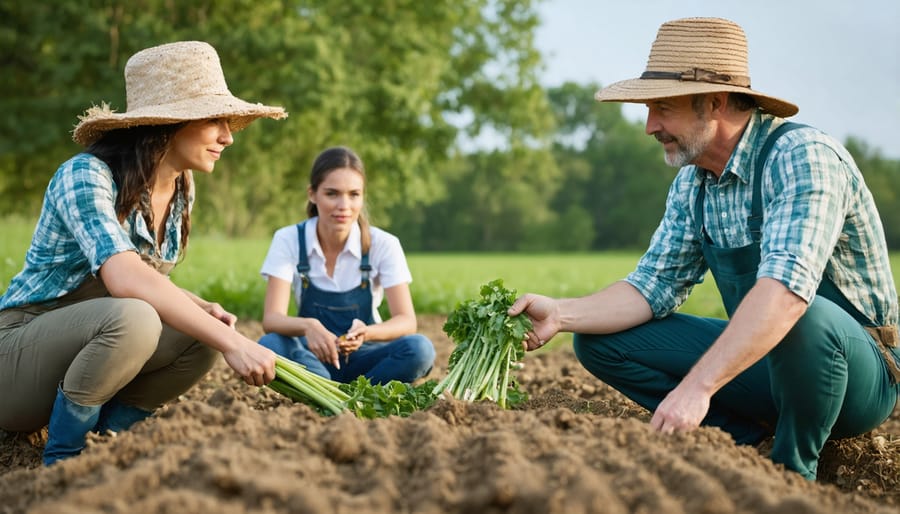
Success Stories from Local Farmers
Meet Sarah Thompson, a third-generation farmer from Lethbridge who transformed her family’s traditional grain operation through agricultural education programs. “Learning about sustainable farming practices didn’t just improve our yields – it gave me a renewed sense of purpose,” she shares. After completing a six-month extension program focused on regenerative agriculture, Sarah’s anxiety levels decreased significantly as she gained confidence in her farming decisions.
In Red Deer, Marcus Chen credits his participation in the Alberta Agricultural Extension Network for helping him overcome isolation during difficult times. “The community connections I made through these programs became my support system,” he explains. “Understanding new technologies and methods helped me feel more in control of my farm’s future.”
The Blackfoot First Nation farming collective reports similar positive outcomes. Elder John Running Horse describes how traditional knowledge integration with modern agricultural education has helped younger farmers find balance and purpose. “When our youth understand both their heritage and current farming practices, they experience a deeper connection to the land and their mental wellbeing improves,” he notes.
Linda Morrison, a dairy farmer near Edmonton, found that participating in agricultural education workshops helped her combat seasonal depression. “Learning about innovative barn designs and animal welfare practices gave me tools to make my operation more efficient while reducing stress levels,” she explains. “The networking opportunities also connected me with other farmers facing similar challenges, and we’ve built a strong support system.”
These stories demonstrate how agricultural education creates not just better farmers, but healthier, more resilient communities.
Educational Resources and Support Networks
Alberta offers a rich network of educational resources and support systems for agricultural professionals and aspiring farmers. The University of Alberta’s Faculty of Agricultural, Life & Environmental Sciences provides comprehensive programs focusing on sustainable farming practices and agricultural innovation. These programs are complemented by hands-on learning opportunities through partnerships with local farms and urban agriculture initiatives.
Olds College, a leading agricultural institution, offers specialized certificates and diplomas in various aspects of agriculture, including precision farming and sustainable land management. Their Smart Farm serves as a living laboratory where students can experience cutting-edge agricultural technology firsthand.
The Alberta Farm Extension Network provides ongoing support through workshops, field days, and mentorship programs. Farmers can access expertise on topics ranging from soil health management to climate-smart agriculture practices. The network’s online learning platform offers flexible, self-paced courses designed to accommodate busy farming schedules.
Local agricultural societies across the province organize regular knowledge-sharing events and maintain community gardens where experienced farmers mentor newcomers. The Alberta Agriculture and Forestry Information Centre operates a toll-free help line, connecting farmers with experts who can provide guidance on specific challenges.
For those interested in organic farming, the Organic Alberta organization offers specialized training programs and certification assistance. Their resource library includes practical guides, research papers, and case studies specific to Alberta’s growing conditions and market opportunities. Regular newsletters keep members informed about the latest developments in sustainable agriculture and upcoming educational events.
Future Directions and Opportunities
Innovation in Agricultural Education
The landscape of agricultural education is rapidly evolving, with innovative approaches reshaping how knowledge is shared and acquired across Alberta’s farming communities. Modern farmers are increasingly embracing digital farm skills through virtual learning platforms, augmented reality field demonstrations, and interactive mobile applications.
Hands-on learning has been enhanced through smart farming simulators, allowing students to practice complex operations in safe, controlled environments before applying them in real-world settings. These technological tools are particularly valuable for remote communities, where access to traditional educational resources may be limited.
Local agricultural colleges are pioneering hybrid learning models that combine online theoretical coursework with practical field experience. This approach has proven especially effective in teaching sustainable farming practices, soil management techniques, and precision agriculture methods.
Peer-to-peer learning networks have emerged as powerful educational tools, connecting experienced farmers with newcomers through mentorship programs and online forums. These networks facilitate knowledge sharing about region-specific challenges and solutions, building stronger, more resilient farming communities.
Innovation extends to assessment methods, with e-portfolios and competency-based evaluations replacing traditional testing in many programs. This shift ensures that learning outcomes are directly applicable to real-world farming scenarios and better aligned with industry needs.

Building Sustainable Support Systems
Building a sustainable support system is crucial for long-term mental wellness in the agricultural community. Alberta farmers have found success through peer-led study groups, where they meet monthly to share experiences and learning strategies. These groups not only enhance agricultural knowledge but also create valuable social connections that combat isolation.
Local agricultural extension offices have developed innovative programs combining traditional farming education with mental health awareness. For example, the Red Deer Agricultural Society’s “Growing Together” initiative pairs experienced farmers with newcomers, creating mentorship relationships that provide both technical guidance and emotional support.
Regular participation in agricultural workshops and seminars serves a dual purpose: updating farming practices while maintaining social connections. These events can be scheduled during off-peak seasons, making them more accessible for busy farmers. The University of Alberta’s Extension Services has successfully implemented online learning communities that allow farmers to stay connected year-round, regardless of weather or distance.
To build resilience, many farmers are incorporating wellness practices into their daily routines. This includes scheduling regular check-ins with fellow farmers, participating in community events, and maintaining connections with local agricultural extension services. The key is creating a support network that’s as reliable as seasonal planning, making mental health maintenance a natural part of farm operations.
Agricultural education and extension programs remain vital pillars in supporting Canadian farmers’ success and sustainability. Through this exploration of educational resources and opportunities, we’ve seen how these programs directly contribute to improved farm management, increased productivity, and enhanced environmental stewardship across Alberta’s agricultural landscape.
The evidence is clear: farmers who actively engage in continuous learning and professional development are better positioned to adapt to changing market conditions, implement innovative practices, and build resilient agricultural operations. From hands-on workshops to digital learning platforms, the variety of educational formats available means there’s something suitable for every learning style and schedule.
We encourage you to take the next step in your agricultural journey by connecting with local extension services and educational programs. Consider starting with a workshop at your nearest agricultural research station, joining an online learning community, or participating in field demonstrations this growing season. Remember, investing in your agricultural education is investing in your farm’s future.
The strength of Alberta’s farming community lies in our willingness to learn, share knowledge, and support one another. By actively participating in agricultural education programs, you’re not only enhancing your own operation but contributing to the collective knowledge and success of Canadian agriculture.
Take action today: reach out to your local agricultural extension office, register for an upcoming workshop, or connect with fellow farmers who’ve benefited from these educational opportunities. Your commitment to learning today will yield abundant harvests tomorrow.

